- QATestLab Blog >
- QA Trends >
- Testing trends in 2019 and further
What does Quality Assurance (QA) industry prepare for us in the upcoming year? What approaches will be in-demand? What products will cause challenges for traditional testing methodology? Today we will try to find the answers.
Software testing has evolved considerably since its appearance. From Waterfall Methodology and manual approach in the 1980s to DevOps and test automation in 2018, it has gone through numerous transformations.
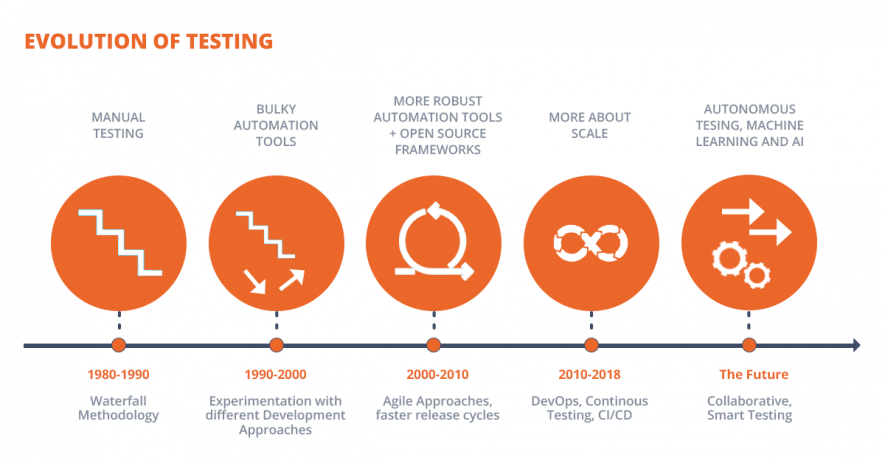
The purpose of testing activities has changed as well. When previously it was merely bug finding, nowadays testing is aimed to ensure customers’ satisfaction and business outcomes. As a result, new trends and approaches come to a stage. Here we are going to have a look at the most significant trends in the upcoming year.
Increasing Adoption of Agile and DevOps
Rapid technology changes put pressure on development teams as software delivery should be as fast as possible. This causes companies to back down on traditional methodology in favor of Agile and DevOps.
For example, in Waterfall Methodology first comes the development stage, and then the testing one is followed by automatization. In the world of Agile and DevOps quality assurance activities are performed as soon as possible in the software development lifecycle (SDLC). Thus, QA engineers don’t wait for the end-product but start checking the code which is available at the moment. Such an approach facilitates Continuous Delivery and Continuous Integration.
Often, companies choose to use a combination of traditional and agile methodology in their testing strategy. For example, according to the World Quality Report, in 45% of companies test activities are performed by all team members, but with the support of a test professional. This is a mix of agile and non-agile ways of organizing QA and testing responsibilities.
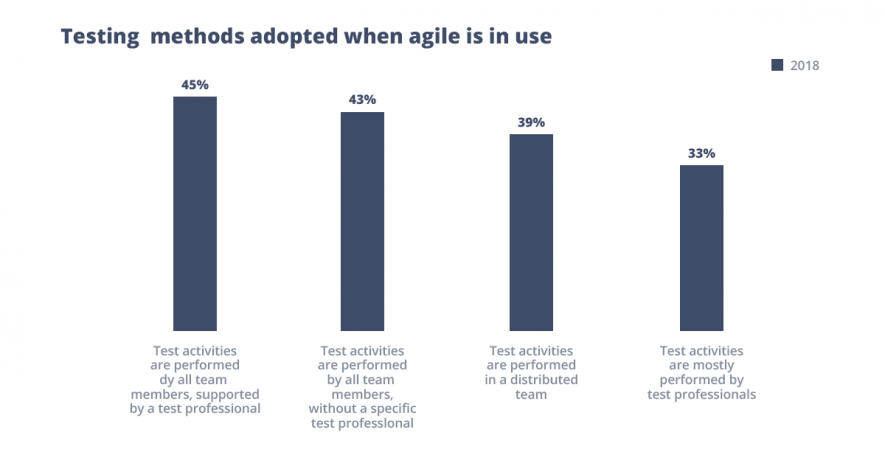
Also, the above-mentioned report shows that 30% of companies consider the introduction of Agile and DevOps to be an important step in their overall IT strategy. Moreover, 99% of respondents have already implemented DevOps principles in their companies. Compared to 2015, when this number was just 88%, we can observe a tendency which will remain in 2019 as well.
Test Automation
Test Automation was first applied more than 15 years ago. But nowadays, this notion has extended from automation of test execution to automation of test generation. The purpose of test automation has changed too. Now it is more focused on the effective use of test cases rather than mere shortening of testing time like it was before.
Though the level of test automation in companies is relatively small, its share increases every year. According to the World Quality Report in 2018, it is 14 – 18% of overall testing activities.
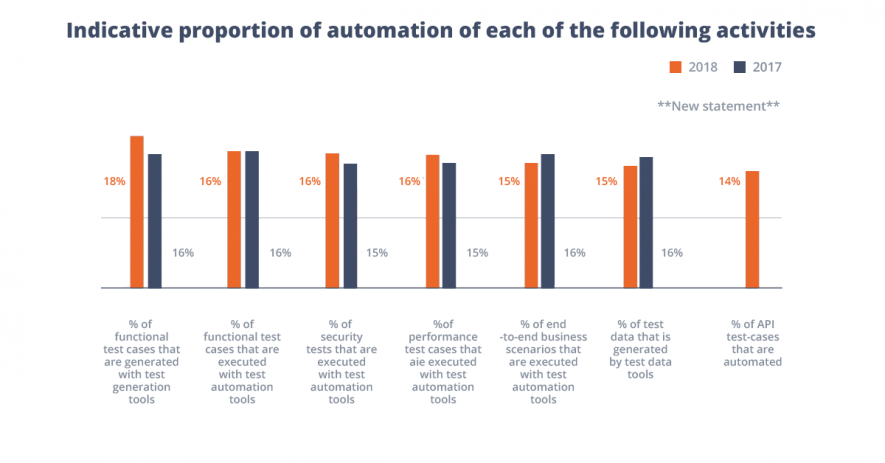
Among the factors for common test automation adoption are:
- Automation helps to derive the full benefits of Agile and DevOps approach.
- Artificial Intelligence (AI) and Machine Learning (ML) enables the intelligent automation of QA activities.
- Automation helps to avoid human intervention wherever possible, thus reducing costs and increasing quality.
Speaking about trends in automation, expected in 2019, we can point out model-based testing, predictive analytics, robot automation, and cognitive automation.
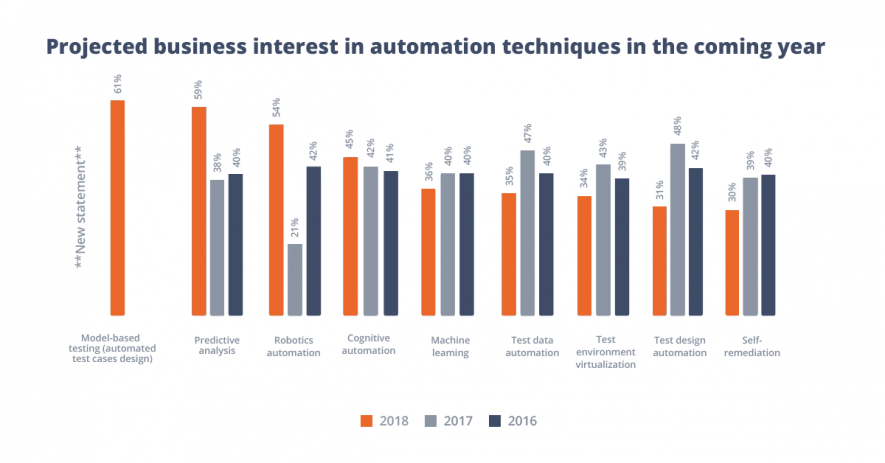
In the case of mobile test automation, we may download the research Future of Mobile Automation by QATestLab. The research will guide you through key concepts, challenges, and possible approaches to mobile test automation based on the expertise of 6 leading market players. QATestLab Partners reveal the solutions to address the challenges of mobile development.
AI and Machine Learning
The appearance of AI and Machine Learning opens new opportunities for the QA industry. It enables companies to transform testing into a self-generating and self-running procedure, but its adoption has numerous challenges.
The idea behind applying AI to QA is to create faster and smarter testing architectures that can adapt itself to the application changes. A lot of companies have already applied smart analytics, mostly for critical decisions and quality predictions.
Another popular QA trend is to use bots for automated testing purposes: lifecycle test automation, setting-up of test environments, test data generation, and integration of test types as part of the DevOps approach.
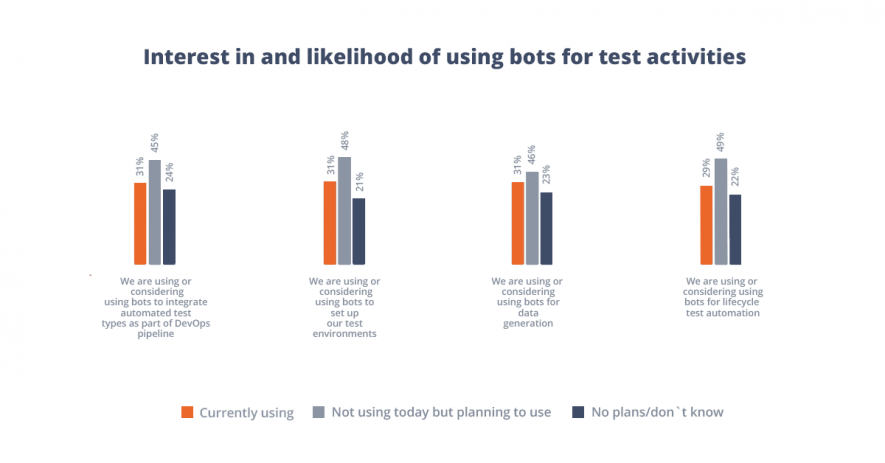
One more challenge AI brings to the QA industry lies in the testing of AI solutions. As far as the technology is relatively new, many companies have not developed a proper AI test strategy yet. The World Quality Report shows that 57% of companies are experimenting with new testing approaches and 45% are just investigating them. But given the pace that AI is entering our life with, AI QA strategy must be of high priority for every QA company.
IoT Testing
IoT is not an interesting concept anymore, it is all around. According to the World Quality Report, the number of respondents that do not have IoT products has decreased
from 17% in 2017 to 3% in 2018.
IoT introduces particular challenges for the QA industry, mostly because of the huge amounts of detailed user data it generates. That’s why many companies do not have their own IoT strategies, but most of them plan to include one in the nearest future.
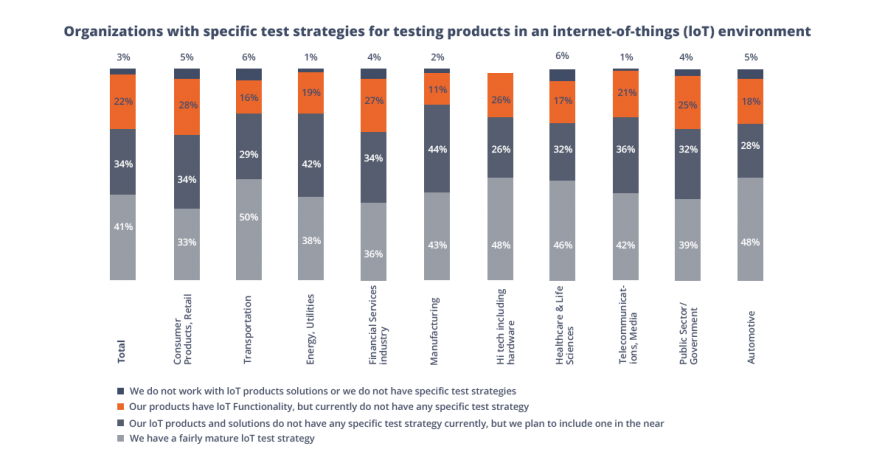
Summary
To make a conclusion, we would say that to understand all these new trends, it is important to realize what drives them. The main factor is innovation and the emergence of new technologies that create numerous challenges and need to use completely new approaches.
Learn more from QATestLab
Related Posts:
- Latest Ongoing Trends in Software Testing
- Software trends and their influence on QA and testing
- Top 5 QA Automation Trends in 2024 Era
About Article Author
view more articles
has more than 2-year experience in blogging and copywriting, copyediting and proofreading of web content.
View More Articles
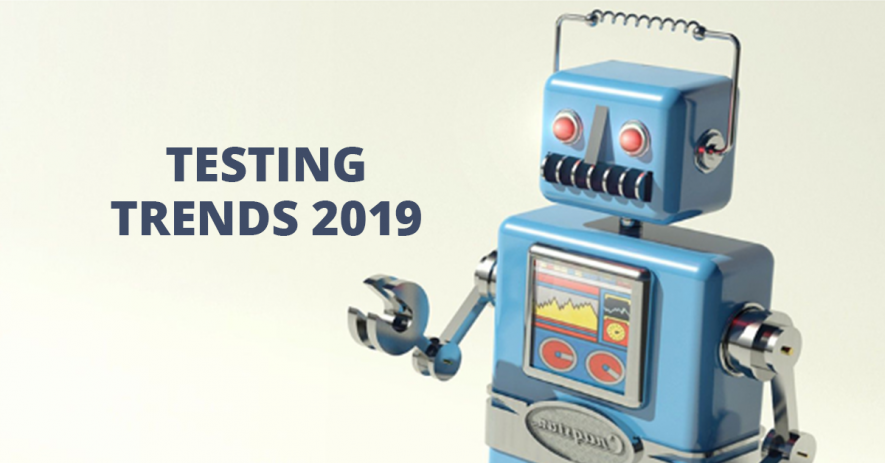






No Comments Yet!
You can be the one to start a conversation.